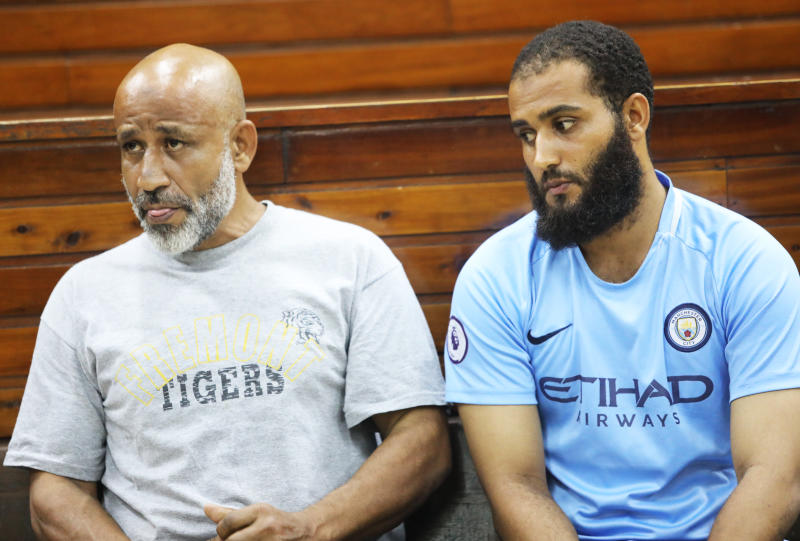×
The Standard e-Paper
Home To Bold Columnists

A man and his son were yesterday sentenced to life in prison for helping Fazul Abdullah, the terrorist responsible for the 1998 US embassy bombing in Nairobi, escape.
Mahfudh Ashur Hemed, 59, and his son, Ibrahim Manfudh Ashur, were also found guilty of being accessories to the murder of 219 people in the embassy attack.